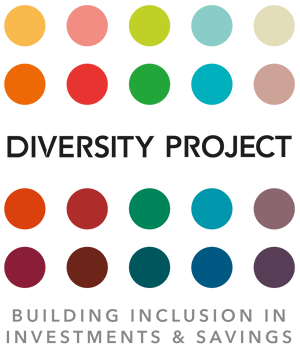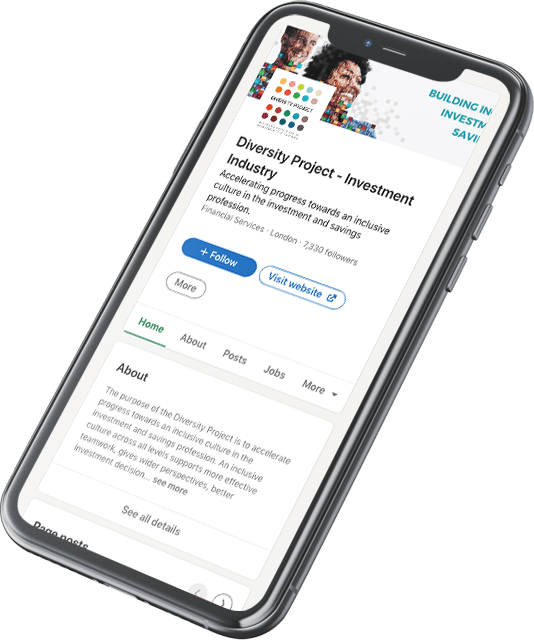The report finds the investment, wealth management and savings industry’s diversity data collection is currently falling short, and that now is the optimal time to overcome the barriers to drive a collective effort towards successful diversity data collection.
The effective collection of diversity data is not just a talent issue, it is also a critical business and reputation issue.
The current state of play
The investment, wealth management and savings industry has seen growing commitment, determination and action to improve diversity and inclusion in their firms – but to date, progress in collecting diversity data is slow and limited in scope.
Findings from the report reveal that 80% of HR leaders from the industry believe that collecting diversity data should be a firm priority in 2021, yet only 20% believe their firms are good at it.
Most organisations focus on collecting data on gender and age only (at 98% respectively), followed by data on race (70%), pregnancy & maternity (63%), and disability (60%).
Characteristics such as sexual orientation (45%), religion or belief (33%), and gender reassignment (20%) are the least explored, with nearly all of this information only collected when an employee joins a firm.
More over, only 26% of organisations collect pay data on preferences other than gender, with the majority of organisations unprepared if ethnicity pay gap legislations were to be strengthened in future.
What are the barriers?
A common challenge that emerged from the study is the perception amongst many C-suite leaders that diversity data is the responsibility of the HR function and people leaders only, while 38% of HR leaders said they lack buy-in from senior leadership.
Organisations also cite lack of awareness amongst employees with regards to the importance of collecting diversity data as the most common barrier to employees disclosing their diversity data, followed by lack of trust, data protections and confidentiality concerns.
Some organisations also consider lack of appropriate technology and regional legal constraints as common barriers.
Where do we want to be?
Progress and evidencing progress requires data capture and interrogation of data to identify issues.
The report concludes that the C-suite leadership across asset managers, asset owners and investment consultants need to own and drive diversity data collection and ensure that they create a culture of trust where their employees feel safe to share the required information; HR systems need to be upgraded to be able to collect diversity data across various employee lifecycle points; and industry data providers also have a role to play in being able to request firms within the industry to share diversity-related information.
It is only with the collective efforts that the industry will be able to shift the needle towards successful data collection across all dimensions of diversity.
Why is now the right time?
COVID-19 has ushered in a new era. Many organisations are reimagining their workplace of the future on the back of the pandemic, investing in putting the right technologies, policies and infrastructure in place to embrace the new normal. This provides a great opportunity to reflect, reframe and redefine diversity data collection and their overall Diversity, Equity & Inclusion (D,E&I) agenda in general.
Stakeholders are demanding increased transparency of Environment, Social and Governance (ESG) information, with asset owners and investment consultants asking for more information about inclusion and diversity in Requests For Proposals (RFPs) amidst an evolving business landscape. An inability to respond will impede business
performance.
Within Talent acquisition ESG is increasingly becoming a differentiating factor for prospective employees in selecting who they work for. Moreover, organisations whose values are aligned with those of their employees benefit from greater levels of retention and engagement. Data is instrumental in informing effective talent strategies.
How can we shift the dial?
The report sets out five steps that will be crucial for organisations looking to enhance their diversity data collection agenda:
- Dedicate time to education and fostering an environment of sharing real life stories of discrimination, better understanding privilege and how diversity data will be used
- Adopt global and organisation-wide principles and commitments where possible, but support and tailor local initiatives as regional and country legislation might differ
- Create Board and senior leadership buy-in to the case for change, build allies and culture of trust to support employee disclosure
- Invest in the technology infrastructure and data analytics capabilities to track progress, take all opportunities to capture data through the employee life cycle and stages of hiring, understand who doesn’t join you and why
- Bring outside-in thinking, learn from other sectors and organisations that are making progress
Commenting on the report, Matt Cameron, Global Managing Director, LGBT Great said:
“The investment, wealth management and savings industry has made limited progress with regards to the collection of diversity data and efforts have been largely disparate. The stakes are high and not just limited to talent but organisations are also at risk of losing business reputation and underperforming commercially with inadequate diversity data. This bold new report not only aims to exposure the shortcomings and suggest new ideas, it also seeks to lay the foundations for future works to come”.
Katherine Savage, Partner, EY said:
“As organisations increasingly adopt flexible working and enhance their environments, social and goverence (ESG) initiatives, it is an opportune time for the industry to come together and collectively address the challenge of diversity data collection. This report highlights that while the first step towards effective data capturing has been taken by many, the path is long, and a lot remains to be traversed”.





